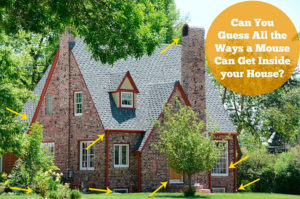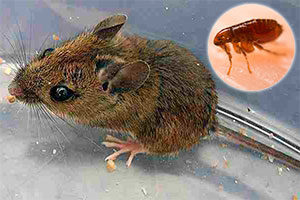Mice are small, resilient creatures that can become unwelcome guests in your home. Understanding their behaviors, physical capabilities, and survival needs is crucial if you’re dealing with a mouse infestation. This comprehensive guide covers everything from their diet and habitat preferences to their surprising abilities and lifespan, giving you the knowledge you need to effectively manage these common pests.
Popular Facts about Mice: Did You Know?
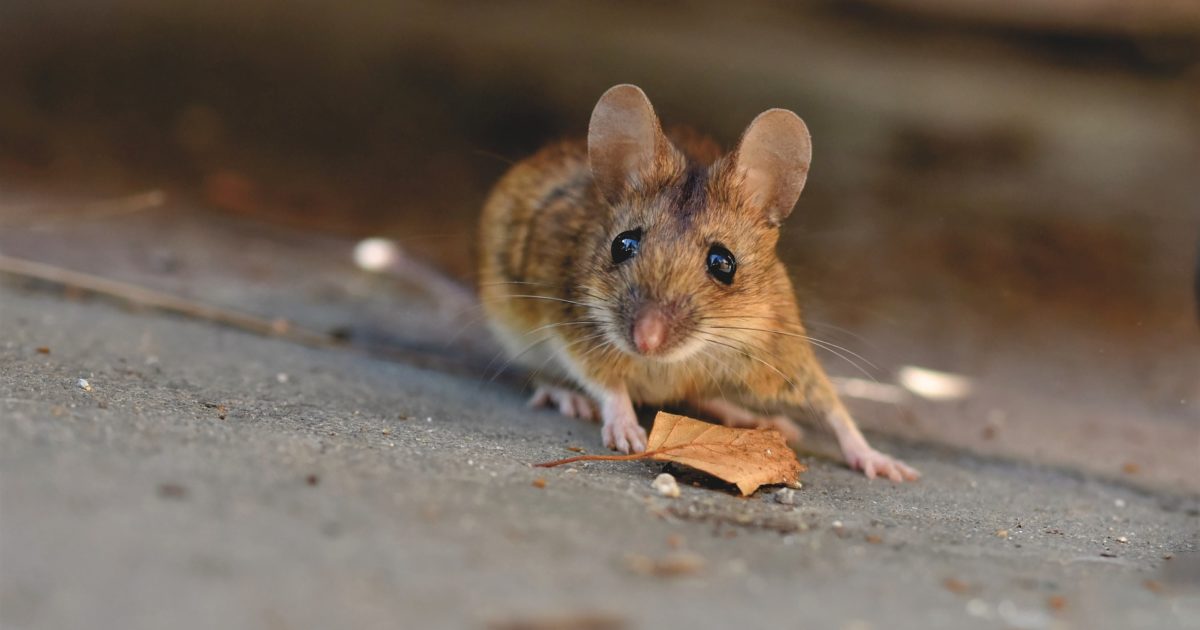
Survival Skills
Mice have evolved remarkable survival abilities that make them challenging to control. They can survive in diverse environments and have impressive physical capabilities:
Water Needs
Mice can go months without drinking water, getting most of their moisture from food. This makes dehydration an ineffective control strategy.
Food Requirements
Mice can only survive 2-4 days without food, eating 15-20 times daily despite their tiny size.
Swimming Ability
Mice are excellent swimmers, capable of treading water for up to three days and holding their breath for three minutes.
Despite their ability to go long periods without water, mice cannot survive long without food. This makes food control a more effective strategy for mouse management than limiting water access.
Mice can detect temperature with their whiskers and communicate using ultrasonic sounds humans cannot hear.
Physical Abilities
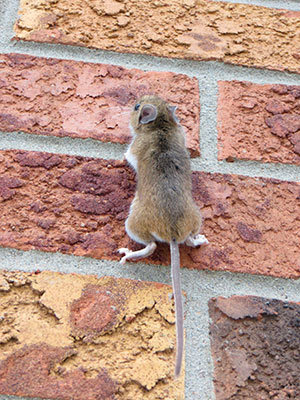
Mice can climb vertical surfaces with ease

Mice are surprisingly fast, reaching 8 mph
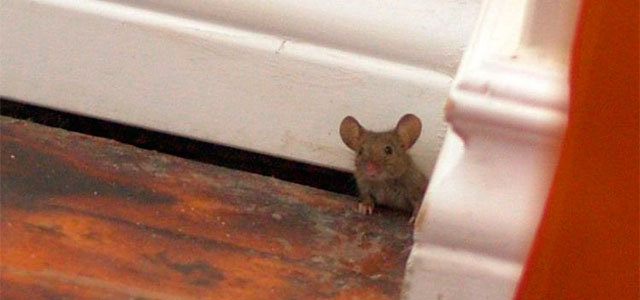
Mice can squeeze through incredibly small openings
Mice are more physically capable than many people realize, which explains how they access seemingly impossible areas of your home:
- Climbing Skills Mice can climb vertical walls, pipes, rough surfaces, and even walk along wires using their nimble paws and tails for balance.
- Speed & Agility They can run up to 8 miles per hour—equivalent to a human running 160 mph—and jump up to 12 inches vertically.
- Small Space Navigation Thanks to flexible collarbones and ribs, mice can squeeze through holes as small as a dime (about 1/4 inch).
Mouse Behaviors & Habits
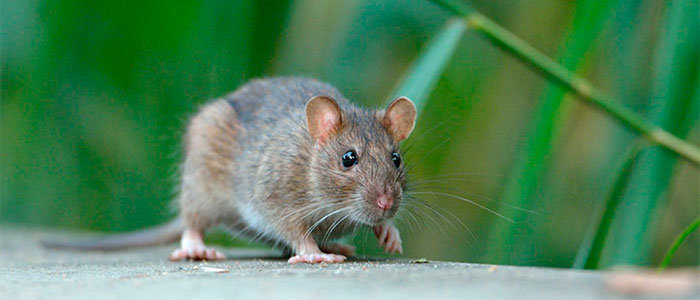
Activity Patterns
Understanding when mice are most active can help you detect and control infestations:
Mice in your home are most active when you’re asleep. They associate light and noise with danger, preferring to forage when the household is quiet. This is why evidence of their presence is often discovered in the morning.
Mice rely heavily on their other senses to navigate in the dark:
- Touch – Mice use their whiskers to feel their way along surfaces and detect changes in the air.
- Smell – They mark territory with urine and use scent to navigate familiar paths.
- Sound – Mice have excellent hearing and use both audible squeaks and ultrasonic sounds to communicate.
Communication & Sounds
If you hear squeaking in your home, you’re likely dealing with multiple mice, as squeaking is primarily a form of communication between mice.
Mice communicate through high-pitched squeaks that vary in frequency and purpose:
- Reproduction – Mice vocalize more during mating.
- Danger – They alert others to threats with frantic communication.
- Mother-baby communication – Essential during the first few weeks after birth.
- Basic social interaction – Daily communication within the colony.
Interestingly, mice also communicate using ultrasonic frequencies that humans cannot hear. These sounds help them share information about food sources, entry points, and potential dangers.
Nesting Behaviors
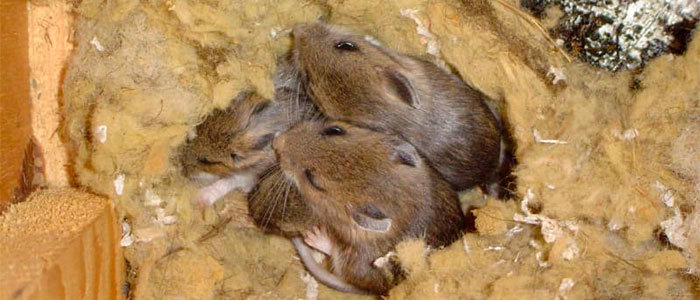
Mice are strategic about their nesting locations, seeking warm, dry, and protected spaces:
- Inside homes: Attics, basements, pantries, cabinets, wall voids, and under appliances
- In the wild: Burrows, rock piles, tree knotholes, dense vegetation, and abandoned structures
Mice build nests using whatever materials are available—shredded paper, fabric, insulation, grass, or leaves. They’re constantly expanding and improving their nests, especially before winter or when preparing for a new litter.
The nesting process follows a methodical approach:
- Scouting for a safe, warm, and dry location away from predators
- Gathering materials for nest construction
- Stockpiling food nearby, especially before winter
- Reproducing and raising young in the protected nest
- Young mice eventually establishing their own nests, expanding the infestation
Types of Mice
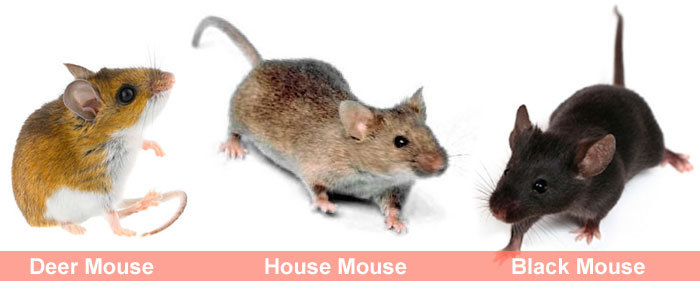
Different species of mice have distinct characteristics and behaviors that can help you identify which type has invaded your home:
| Mouse Type | Appearance | Habitat | Behavior |
|---|---|---|---|
| House Mouse | Small (5-8 inches including tail), with tan, brown, black, gray, or white coloring; small round ears; hairless tail | Homes, buildings, basements, kitchens | Extremely adaptable, nests close to food sources, most common indoor pest |
| Deer Mouse/Field Mouse | 4.5-9 inches long, brownish-beige with white underbelly and feet, larger ears | Rural areas, fields, forests, sometimes enters homes in cold weather | More likely to build burrows, excellent climbers, carriers of hantavirus |
| White-footed Mouse | Similar to deer mouse with white feet and belly | Woods, shrubby areas, fields, farm buildings, houses | Nests in hidden areas like tree stumps, logs, burrows; longer lifespan (2-3 years) |
Some mice species prefer to build burrows underground, including:
- Wood Mice
- Oldfield Mice (Beach Mice)
- Yellow-Necked Mice
- Deer Mice
Different mouse species construct different types of burrows based on their DNA. Oldfield mice create more complex burrows with escape routes, while deer mice build simpler structures.
Diet & Feeding Habits
Contrary to popular belief, mice don’t particularly prefer cheese. As opportunistic omnivores, they’ll eat almost anything available:

Seeds & Nuts
- Preferred natural food source
- High in energy and nutrients
- Often stored in nests

Grains & Cereals
- Commonly found in homes
- Easily accessible in pantries
- Can chew through packaging

Protein Sources
- Insects and small invertebrates
- Pet food (dry or wet)
- Even other mice in extreme cases
Mice eat frequently but in small amounts—consuming 15-20 meals per day. They can eat up to 3 grams of food daily despite weighing only 17-25 grams on average. This frequent feeding pattern means even a few crumbs can sustain mice for extended periods.
Reproduction & Lifespan
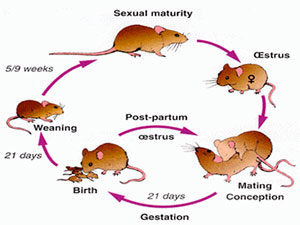
Mice reproduce at an astonishing rate, which explains how small infestations can quickly become major problems:
Breeding Cycle
- Pregnancy lasts 19-21 days
- Newborn pups lack fur, eyesight, and developed ears
- Eyes open after approximately two weeks
- Weaning occurs at around 21 days
- Female mice reach sexual maturity at just 6 weeks of age
- A single female mouse can produce 5-10 litters per year with 5-6 pups per litter
Lifespan Factors
A mouse’s lifespan varies significantly depending on its environment:
| Environment | Average Lifespan | Limiting Factors |
|---|---|---|
| Wild | 5-12 months | Predators, food scarcity, weather, disease |
| Homes/Buildings | 1-2 years | Better access to food, shelter, fewer predators |
| Laboratory/Captivity | 2-3 years (up to 4) | Controlled diet, environment, healthcare |
Wild mice have only a 50% chance of surviving beyond 5 months due to numerous predators including birds, snakes, coyotes, and cats. Indoor mice live significantly longer due to favorable conditions and protection from predators.
The Methuselah Mouse Prize competition recognizes laboratory mice with extraordinary lifespans. The current record holder is a genetically modified mouse that lived for 1,819 days (nearly 5 years).
How to Control Mice
Understanding these facts about mice can help you develop effective control strategies:
Effective Mouse Prevention Tips
- Seal entry points – Block holes with steel wool (which mice hate), caulk, or metal mesh
- Eliminate food sources – Store food in sealed containers and clean up crumbs immediately
- Reduce clutter – Remove potential nesting materials and hiding spots
- Maintain landscaping – Keep grass short and vegetation trimmed away from exterior walls
- Use natural deterrents – Plant mint around your home’s perimeter (mice dislike the smell)
For active infestations, a three-step approach is most effective:
- Reduce food and water supplies to limit resources
- Set up traps with irresistible bait like peanut butter or seeds
- Use electronic and natural deterrents to prevent new mice from entering
Frequently Asked Questions
Can mice climb walls and ceilings?
Yes, mice are excellent climbers. They can scale both interior and exterior walls, walk along wires and pipes, and even hang from ceilings. Their small claws allow them to find tiny cracks and crevices for grip, while their strong bodies and balancing tails help them navigate vertical surfaces.
How long can mice survive without food and water?
Mice can only survive 2-4 days without food. However, they can go months without drinking water if they get sufficient moisture from their food. This is why eliminating food sources is more effective for control than trying to remove water access.
Are mice nocturnal?
Mice are primarily active at dawn and dusk (crepuscular) and during the night (nocturnal). They avoid daytime activity when predators can more easily spot them. In homes, they’re most active when the household is quiet and dark.
Why do mice squeak?
Mice squeak to communicate with each other. Different squeaks serve different purposes: reproduction, alerting others to danger, mother-baby communication, and basic social interaction. They also use ultrasonic frequencies humans cannot hear.
How fast can mice reproduce?
Mice reproduce extremely quickly. Female mice reach sexual maturity at just 6 weeks of age and can produce 5-10 litters per year with 5-6 pups per litter. Under ideal conditions, a small mouse population can grow exponentially within months.
Why are elephants afraid of mice?
The belief that elephants fear mice stems from ancient writings, including Pliny the Elder’s statement in 77 A.D. While some claim mice could crawl up an elephant’s trunk and suffocate it, this is unverified. More likely, elephants are startled by the sudden movements of small animals rather than fearing mice specifically.
Understanding mice behavior, biology, and habits is the first step toward effective control. By eliminating food sources, sealing entry points, and using appropriate trapping methods, you can manage and prevent mouse infestations in your home.
